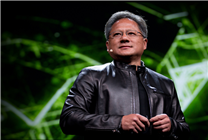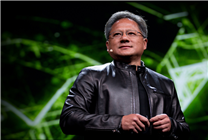Tesla’s Sales Struggles in Europe: A Closer Look
Summary:
- Tesla’s sales in various European markets have significantly declined, with registrations dropping in August compared to the previous year.
- Despite some growth in Norway and Spain, competition from other electric vehicle manufacturers, particularly BYD, is severely impacting Tesla’s market share.
- Consumer backlash against CEO Elon Musk’s political stances adds to Tesla’s challenges in the European landscape.
In recent months, Tesla has found itself grappling with pronounced sales declines across several European markets. This downturn persists despite counter-trend growth noted in Norway and Spain. Factors contributing to this decline include intensified competition from emerging electric vehicle (EV) manufacturers and rising consumer resistance linked to CEO Elon Musk’s public persona.
Notable Sales Declines
Data from France showed that Tesla’s vehicle registrations plummeted 47.3% in August compared to the same month in the previous year, even as overall automobile sales in the country increased by approximately 2.2%. Similarly, in Sweden, Tesla’s sales dropped by over 84%, while the overall EV market, along with total car sales, saw a growth of 6%. The situation was no better in Denmark and the Netherlands, where Tesla’s registration volumes fell by 42% and 50%, respectively.
While Norway witnessed a 21.3% increase in Tesla registrations, it is noteworthy that BYD, a leading Chinese EV manufacturer, saw its registrations soar by 218%. Spain offers subsidies of up to €7,000 for electric vehicles, yet Tesla’s sales growth of 161%, rising from 549 to 1,435 vehicles, was dwarfed by BYD’s 400% growth, selling 1,827 vehicles.
Competitive Challenges
Tesla’s challenges in Europe extend beyond declining sales figures. The brand’s limited product lineup—with no new mass-market models since the Model Y launch in 2020—places it at a competitive disadvantage. Meanwhile, numerous traditional automakers and new players from China are rolling out diverse models, further squeezing Tesla’s market presence.
Mattias Schmidt, an analyst specializing in the European auto sector, emphasized that Tesla’s sagging sales are partly tied to an increasingly competitive landscape. He noted a notable drop in Tesla’s market share in Western Europe, from 2.5% last year to just 1.7%. Elon Musk’s assertion during a July investor call that "there is no problem with Tesla’s sales in the European market" reflects a disconnect from market realities.
The introduction of the updated Model Y in June was expected to revitalize sales. However, August figures indicate a 46.5% decline in Denmark and an astonishing 87% drop in Sweden. These trends suggest that merely introducing new models may not suffice to reinvigorate Tesla’s fortunes in Europe.
Brand Perception and Political Backlash
Musk’s political engagements have further complicated Tesla’s brand perception in Europe. His financial support for Donald Trump and openness towards European far-right parties have caused growing consumer backlash. According to a survey from Electrifying.com, over half of respondents indicated that Musk’s involvement negatively influenced their willingness to purchase a Tesla. This decline in consumer favor reflects a shift that may threaten Tesla’s once-unassailable market position.
SC Insights co-founder Andy Leland suggests that the increase in used Tesla vehicles and their reduced prices may be further impacting new car sales. Significant price cuts for new models have depressed the resale value of used Teslas, causing an influx of second-hand vehicles in the market, attracting consumers away from new purchases.
Marketcheck, a UK-based agency that tracks used car data, reported a striking 270% surge in used Tesla sales in the UK this July, alongside a 41% drop in the average price of used Model Ys from the previous year.
Conclusion
Tesla’s challenges in the European market underline the complexities of maintaining a leading position in a burgeoning industry, especially in a landscape now characterized by fierce competition and shifting consumer sentiments. As it navigates these obstacles, how Tesla adapts its strategies—both in product offerings and brand positioning—will be crucial in determining its future success in Europe. The company’s ability to respond to the increasing pressures from competitors and consumer attitudes will ultimately shape its market viability in the region.







